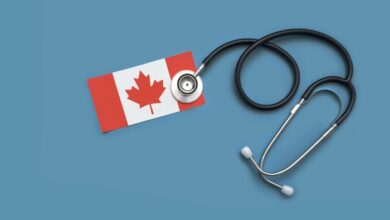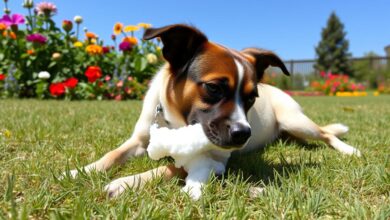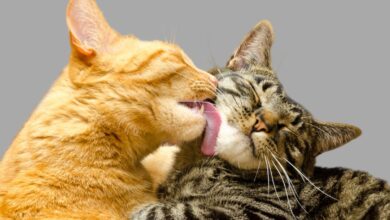Essential Horse Care Tips: A Complete Guide for Healthy Horses
Horses are majestic and intelligent animals that require dedicated care to maintain their health and well-being. Whether you are a new horse owner or have years of experience, understanding essential horse care tips is crucial for ensuring your horse remains healthy, happy, and strong. In this article, we’ll cover the most important aspects of horse care, from feeding to grooming and healthcare, providing you with a complete guide on how to care for your equine companion.
1. Provide Proper Nutrition
Feeding your horse the right diet is one of the most important aspects of horse care. Horses are herbivores and need a well-balanced diet that includes:
- Forage: Hay or grass should be the primary source of nutrition for your horse. Make sure your horse has access to high-quality hay or pasture, which provides essential fiber and helps maintain healthy digestion.
- Grains: Depending on the horse’s activity level, you may need to supplement their forage with grains like oats or barley. Be cautious, as too many grains can lead to digestive issues.
- Minerals and Vitamins: Ensure your horse gets the necessary vitamins and minerals, either through supplements or a balanced feed, to promote bone strength and overall health.
- Water: Horses need a constant supply of clean, fresh water. On average, a horse drinks 5 to 10 gallons of water per day, depending on the weather and activity level.
2. Regular Grooming
Grooming your horse is not only essential for their appearance but also for their health. Regular grooming helps maintain healthy skin and coat while allowing you to inspect your horse for injuries, skin infections, or parasites. Here are a few grooming essentials:
- Brushing: Use a curry comb to loosen dirt and hair, followed by a stiff brush to remove debris. Finish with a soft brush for the face and sensitive areas.
- Hoof Care: Check and clean your horse’s hooves daily using a hoof pick to remove stones, dirt, or mud. Look for signs of thrush, cracks, or infections.
- Bathing: Occasionally, give your horse a bath using horse-specific shampoo to maintain a shiny and clean coat. Be sure not to over-bathe as it can strip natural oils from their skin.
3. Hoof Care and Maintenance
“No hoof, no horse” is a common saying in the equestrian world. Proper hoof care is crucial to prevent infections, lameness, and other hoof-related issues. Follow these tips for hoof maintenance:
- Trim Regularly: Horses’ hooves grow continuously, and they need regular trimming (every 6–8 weeks) by a farrier to maintain proper hoof health.
- Shoeing: If your horse needs extra protection or support, especially for work on hard or rough surfaces, consult with your farrier about shoeing options.
- Daily Inspection: Always check the hooves for cracks, chips, or lodged stones that could cause pain or damage.
4. Provide a Safe and Comfortable Shelter
Horses need adequate shelter to protect them from extreme weather conditions, whether it’s hot sun, heavy rain, or cold winds. A well-designed horse shelter should include:
- Adequate Space: Ensure there’s enough room for your horse to move freely without overcrowding. Each horse should have its own stall, ideally measuring 12×12 feet.
- Ventilation: Good airflow is critical to reduce respiratory issues and keep the environment free from dust and odors.
- Bedding: Use straw, shavings, or other soft materials to provide a comfortable resting area for your horse. Ensure bedding is regularly cleaned and replaced to avoid ammonia buildup from urine.
5. Exercise and Turnout
Regular exercise is essential for your horse’s physical and mental well-being. Horses are naturally active animals that require daily movement to stay healthy. Consider the following:
- Daily Turnout: Allow your horse time to roam in a pasture or paddock for a few hours every day. This promotes natural movement, social interaction, and mental stimulation.
- Riding and Training: Engage your horse in regular exercise routines such as riding, lunging, or groundwork to maintain muscle tone and cardiovascular health.
- Stretching: After a workout, gently stretch your horse’s muscles to prevent stiffness and soreness.
6. Routine Veterinary Care
Just like humans, horses need routine health checkups to prevent and treat illness. Schedule regular veterinary visits to ensure your horse stays in peak condition. Important aspects of vet care include:
- Vaccinations: Keep up-to-date on vaccinations for common equine diseases like tetanus, influenza, and rabies.
- Deworming: Parasite control is crucial. Develop a deworming schedule with your vet to protect your horse from internal parasites like roundworms and tapeworms.
- Dental Care: Horses’ teeth continuously grow, and they may develop sharp edges that cause discomfort while eating. Routine dental care, including floating (filing down sharp edges), helps maintain oral health.
- Health Monitoring: Monitor your horse’s vital signs such as temperature, heart rate, and respiration rate to catch any early signs of illness.
7. Recognizing Signs of Illness
It’s important to be familiar with your horse’s normal behavior so you can recognize when something is wrong. Early detection of illness can prevent more serious health issues. Common signs to watch for include:
- Loss of Appetite: If your horse stops eating or drinking, it may indicate illness.
- Lethargy: A sudden lack of energy or interest in activities can be a sign of discomfort or illness.
- Lameness: Limping, favoring a leg, or refusing to move could indicate an injury or hoof problem.
- Digestive Issues: Monitor for signs of colic, such as rolling on the ground, kicking at the belly, or restlessness.
8. Mental Stimulation and Social Interaction
Horses are social animals and thrive on interaction with other horses or even humans. Providing opportunities for socialization helps prevent boredom and behavioral problems. Consider these tips:
- Companionship: If possible, keep your horse in a herd or with at least one other horse to prevent loneliness.
- Toys and Enrichment: Introduce stable toys or obstacles to engage your horse mentally during downtime.
- Training: Regular training sessions can serve as both physical exercise and mental stimulation, strengthening the bond between you and your horse.
Conclusion
By following these essential horse care tips, you can ensure your horse enjoys a healthy, happy life. From providing proper nutrition and daily grooming to ensuring regular exercise and veterinary care, each of these elements plays a vital role in your horse’s overall well-being. Remember, a well-cared-for horse is a joy to own, and the time and effort you invest will be reflected in your horse’s vitality and temperament.





